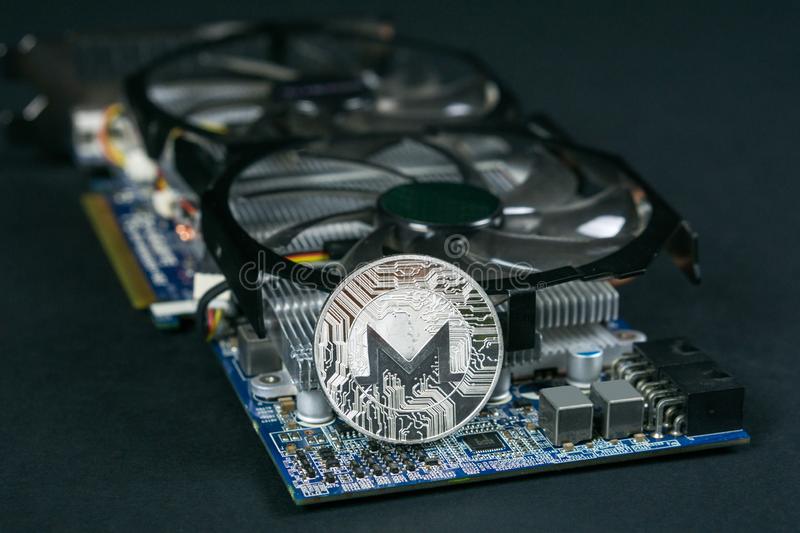If you’re looking to make the most out of your Monero mining efforts, optimizing your mining software is a crucial step to ensure maximum efficiency and profitability. Monero, known for its privacy features, offers an attractive opportunity for miners, but achieving optimal results requires a thoughtful approach. In this guide, we’ll delve into the intricacies of Monero mining optimization, exploring strategies, tools, and best practices that can help you achieve impressive returns.
Table of Contents
- Introduction to Monero Mining
- Choosing the Right Mining Software
- Hardware Considerations for Monero Mining
- Optimizing Mining Software Settings
- Configuring CPU and GPU Usage
- Selecting the Right Mining Algorithm
- Managing Temperature and Cooling
- Networking and Connectivity Optimization
- Power Efficiency and Consumption
- Monitoring and Tracking Performance
- Overcoming Common Challenges in Monero Mining
- Dealing with Hash Rate Fluctuations
- Addressing Connectivity Issues
- Staying Up to Date with Monero Updates
- Security Measures for Mining Software
- Fine-Tuning Your Mining Strategy
- Solo Mining vs. Pool Mining
- Choosing the Right Pool
- Calculating Profitability and ROI
- Environmental Considerations and Sustainability
- Scaling Up Your Mining Operation
- Conclusion
1. Introduction to Monero Mining
Monero, a privacy-focused cryptocurrency, has gained popularity among miners due to its unique features. Mining Monero involves solving complex mathematical puzzles, contributing to the security and maintenance of the network.
2. Choosing the Right Mining Software
Selecting the appropriate mining software is crucial. Popular options include XMRig, SRBMiner, and Cast XMR. Each software has its strengths, so choose based on your hardware and preferences.
3. Hardware Considerations for Monero Mining
Your hardware plays a pivotal role in mining success. A powerful CPU or GPU enhances your hash rate, resulting in better mining rewards.
4. Optimizing Mining Software Settings
Configuring CPU and GPU Usage
Balancing CPU and GPU usage is vital. Overloading your hardware can lead to inefficiencies and higher energy consumption.
Selecting the Right Mining Algorithm
Monero uses RandomX, an algorithm designed to be ASIC-resistant. Ensure your mining software is optimized for this algorithm.
Managing Temperature and Cooling
Efficient cooling prevents overheating, preserving the longevity of your components and maintaining optimal performance.
5. Networking and Connectivity Optimization
A stable and high-speed internet connection is essential. Uninterrupted connectivity prevents mining interruptions and lost profits.
6. Power Efficiency and Consumption
Reducing energy consumption not only benefits the environment but also cuts down on mining costs, ultimately increasing profitability.
7. Monitoring and Tracking Performance
Regularly monitor your hardware’s performance using dedicated software. This helps detect issues promptly and fine-tune settings.
8. Overcoming Common Challenges in Monero Mining
Dealing with Hash Rate Fluctuations
Hash rate fluctuations are common. Patience and consistent monitoring are key to managing these fluctuations effectively.
Addressing Connectivity Issues
Network disruptions can hinder your mining operation. Implement redundancy measures to mitigate potential losses.
9. Staying Up to Date with Monero Updates
Stay informed about Monero’s updates, as software changes can impact mining efficiency. Regularly update your mining software to stay competitive.
10. Security Measures for Mining Software
Prioritize security by using trusted mining software sources. Employ firewalls and antivirus software to safeguard your system.
11. Fine-Tuning Your Mining Strategy
Solo Mining vs. Pool Mining
Choose between solo mining and pool mining based on your resources and risk tolerance. Pool mining offers consistent payouts, while solo mining provides a chance for larger rewards.
Choosing the Right Pool
Select a reputable and reliable mining pool. Research pool fees, payout mechanisms, and community reputation before joining.
12. Calculating Profitability and ROI
Use online calculators to estimate potential earnings and return on investment (ROI). Factor in electricity costs for accurate projections.
13. Environmental Considerations and Sustainability
Be mindful of the environmental impact of mining. Explore renewable energy options to reduce your carbon footprint.
14. Scaling Up Your Mining Operation
As you gain experience, consider scaling up your mining operation. Gradually add more hardware while ensuring proper management and optimization.
15. Conclusion
Optimizing Monero mining software requires a multifaceted approach. By carefully configuring hardware, fine-tuning settings, and staying informed, you can maximize your mining rewards while contributing to the Monero network’s security and decentralization.
FAQs
Q1: Is Monero mining still profitable in today’s market? A: Monero mining can be profitable, but it depends on factors like hardware, electricity costs, and market conditions.
Q2: Can I mine Monero with a regular laptop? A: While possible, mining with a regular laptop may not yield significant results due to lower processing power.
Q3: How often should I update my mining software? A: Regular updates are recommended to stay current with Monero’s developments and maintain optimal performance.
Q4: What’s the role of a mining pool in Monero mining? A: Mining pools combine computational power, increasing the chances of earning consistent rewards for participants.
Q5: Are there any tax implications for Monero mining? A: Mining rewards are often subject to taxation; consult a financial expert to understand your tax obligations.
RELATED POSTS
How to Optimize Monero Mining for CPU Miners


